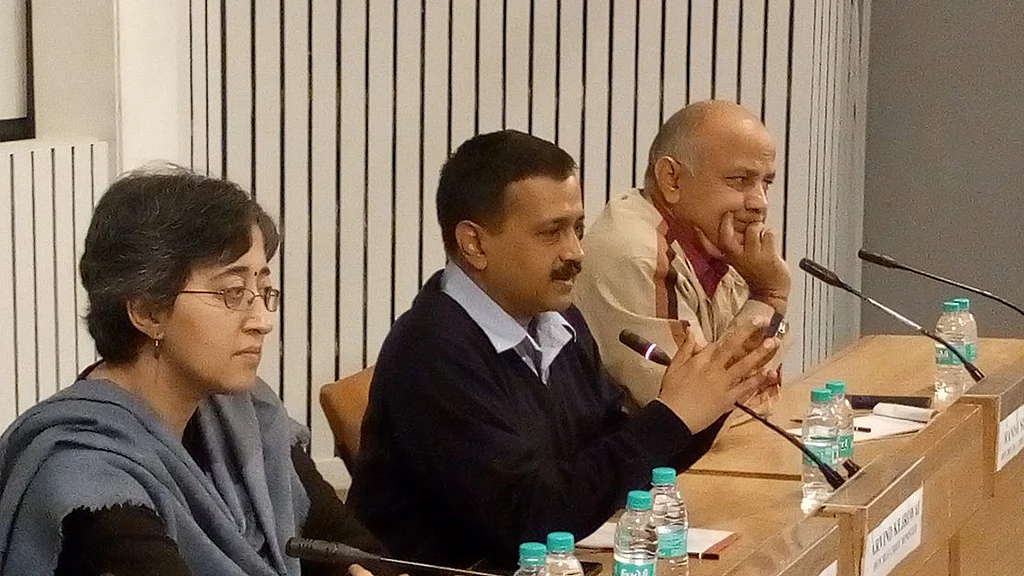Centre’s assault on federalism needs to be resisted
One does not have to be a supporter of AAP or an admirer of Arvind Kejriwal to condemn the Home Ministry’s decision to dismiss 10 advisers to the Delhi Government

All political parties should have opposed the Union Home Ministry’s decision to remove all ten advisers to the Delhi government. The Union Home Ministry drew out some technical and legal flaws and decreed that the posts were not approved by the Central government and hence the appointments were illegal.
Other political parties seem to be looking at it as one more opportunity for attacking the Aam Admi Party government of Delhi. It’s, however, not necessary to be a fan of the Delhi government or a supporter of the Aam Admi Party to oppose the decision by the central government. It is sufficient to be a believer in democracy and democratic principles as well as the federal principle that has kept India united.
The Centre is not the master and states, whether big or small, its subordinates. The states have their own power and the source of their autonomy is the fact that a separate government is elected by its people for governance. Otherwise, the states would have been an extension of the administrative departments of the Centre and its secretaries would have been running the state governments.
But it is now public knowledge that the present central government can go to any extent to stall the functioning of the Delhi state government- the previous Lt Governor and the present one have been proving it time and again for last three years.
Rescinding the Delhi government’s decision to make temporary teachers of Delhi schools permanent, was one such decision by the Centre. It has become by now an almost daily experience to see one or the other decision of the Delhi government dismissed by the Centre or trashed by central government officials.
It is a state government’s prerogative to decide how it will function and whose help and assistance it will take. Yes, it should be done within the legal framework and under the Constitution.
But when representatives of a particular organisation informally examine and influence the decisions of important departments of the union government, it is a blow to the Constitution and the Government. A different way of doing this would be to select your advisers and announce it publicly. This brings in transparency and since they are active participants in decision making, their responsibility and accountability can also be determined.
The Centre is not the master and states, whether big or small, its subordinates. The states have their own power and the source of their autonomy is the fact that a separate government is elected by its people for governance. Otherwise, the states would have been an extension of the administrative departments of the Centre and its secretaries would have been running the state governments.
Delhi government had appointed its advisers. It’s possible that there might have been some flaws in the process of the appointment. Had the Centre’s attitude been more constructive, it would have informed the state about the technical flaws and advised them to correct the flaws and regularise the appointments. But when the central government is determined to place obstacles before the Delhi Government, why would it be constructive?
But every time the Central government imperiously puts a spoke in the wheel, it insults the people of Delhi more than it denigrates the elected chief minister Arvind Kejriwal. People of Delhi after all had elected the Aam Aadmi Party for governing Delhi.
The truth is that the Bharatiya Janata Party has not forgiven the people of Delhi for opting for the Aam Aadmi Party’s government. If you recall the election campaign for the assembly elections in Delhi, Prime Minister Narendra Modi had repeatedly urged the people of Delhi to elect representatives who would be scared of him and deliver. He obviously meant candidates put up by the BJP. But the people of Delhi ignored the hint and the implicit threat that the PM would not allow anyone else to deliver and voted for AAP. The BJP is clearly bent upon ‘revenge’ and hence its efforts to ensure that the AAP Government fails to deliver.
Aam Aadmi Party is citing the impeccable educational record of one of the advisers, Atishi Marlena to protest this decision by the Centre saying that she is an excellent scholar and has studied in Oxford. This argument is not really necessary. Had she studied at even Meerut University, the Delhi government would have been well within its rights to appoint her as an adviser.
We should not resort to an undemocratic argument to advocate for a democratic right. It is the same when an anti-AAP leader had said about one of the advisers that though he is not even a graduate, the AAP Government had been paying him one and a half lakh rupees. This is also an incorrect argument.
The Congress government of Puducherry is also becoming a victim of the Central government’s ambition of grabbing control over state governments. If seen technically, Puducherry’s condition is almost like that of Delhi. Therefore, advocating for the rights of Delhi government is not only in the interest of Delhi or AAP. It is in the interest of democracy and the federal structure.
The important question is about protecting the fundamental characteristics of Indian democracy and Constitution. The present Central government is doing all that it can to subvert democracy in the name of the Constitution. Therefore, the main concern ought to be the urgency to guard the basic features of the Constitution.
Follow us on: Facebook, Twitter, Google News, Instagram
Join our official telegram channel (@nationalherald) and stay updated with the latest headlines
